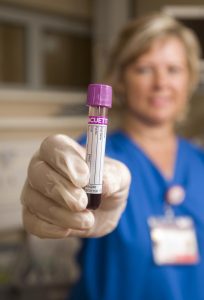
By Christine Kukka
Iron is crucial to our health, but too much iron – called iron overload – can put us at risk of liver damage and other health problems, especially if we have hepatitis B-related liver disease and/or we’re Irish.
Irish and hepatitis B are not normally two words you hear in the same sentence, but both populations may need to be careful about how much iron they eat.
- A liver inflamed or damaged by a chronic hepatitis B infection or other causes doesn’t process or store liver effectively and the excess iron accelerates liver damage and causes a host of other medical problems.
- If you’re Irish or of northern European ancestry, one in eight of you have a genetic predisposition for hereditary hemochromatosis (HH) – commonly called the Celtic Curse — that occurs when the body doesn’t process or store iron properly, leading to a four-fold increase in iron absorption.
- If you’re Irish and have chronic hepatitis B, you may want to celebrate St. Patrick’s Day with a trip to your doctor for a simple blood test for ferritin (iron) and transferrin saturation. If they’re elevated, your doctor may order a gene test to see if you have HH.
The relationship between iron overload and hepatitis B has been problematic, or as researchers like to say, “not well defined.”
Our liver is the body’s major storage organ for iron. About one-third of the iron we consume is stored in liver cells, which play a major role in recycling iron and synthesizing transferrin (the main transporting protein) and ferritin (the major storage protein) from iron.

When our livers are damaged or inflamed from hepatitis B, the Celtic Curse, fatty liver or alcohol, they don’t synthesize iron well, leading to excessive iron deposits in the liver which leads to more liver damage, including inflammation, fibrosis and even liver cancer. In some hepatitis C patients, iron overload was found to reduce the effectiveness of antiviral treatment in some patients.
Researchers often found elevated iron levels in hepatitis B patients and suspected chronic hepatitis B could lead to iron overload. Recently, new research has discovered it’s the inflammation or liver damage from hepatitis B that causes iron problems. People with “inactive” hepatitis B with no signs of liver damage usually do not experience iron overload.
“Our data clearly indicate that hepatitis B-related liver injury, but not direct chronic hepatitis B infection, is likely responsible for the changes in the serum iron markers,” researchers concluded in a report on this topic published in the European Journal of Gastroenterology & Hepatology.
Hepatitis B Foundation Medical Director Robert Gish believes that iron overload is a “non-issue” for hepatitis B patients. However, he does have his patients get a transferrin saturation test. (A score of 20 percent indicates iron deficiency while a score exceeding 50 percent suggests iron overload.)
Many foods in our diet are rich in iron, including iron-fortified cereals, breads and pastas and meat including beef, pork, poultry and seafood.
According to experts, unless we have severe liver damage (often indicated by elevated liver enzymes (ALT/SGPT) or an ultrasound), we don’t need to restrict our consumption of foods rich in iron.
But if we do have liver damage and/or are Irish, it might be worth a conversation with our doctor. When we have excess iron, it is usually not detected by a complete blood count (CBC), hemoglobin, or hematocrit, test, it requires the transferrin saturation test.
Symptoms to watch for include fatigue, joint pain, abdominal pain, irregular heartbeat, skin color changes, irregular menstrual cycles, loss of libido and impotence, bone density changes, depression, anxiety, muscle pain, brain fog, chronic diarrhea, diabetes, liver damage and headaches.
For more information on HH, visit the website of the American Hemochromatosis Society.




 By Christine Kukka
By Christine Kukka














